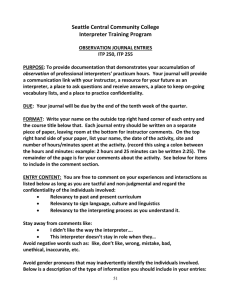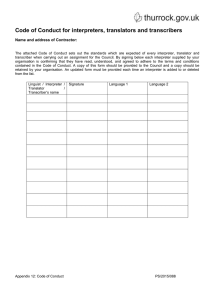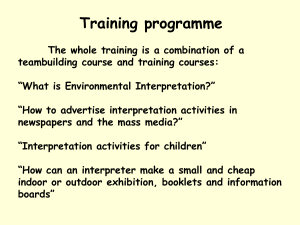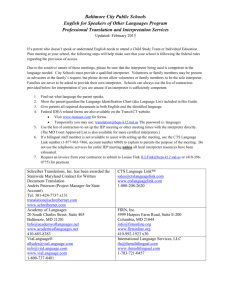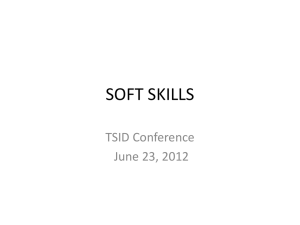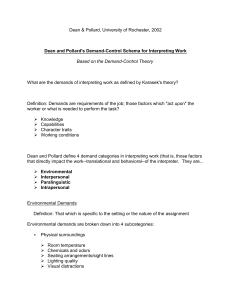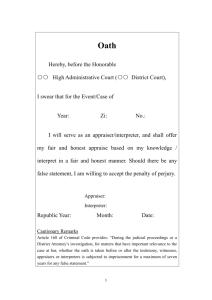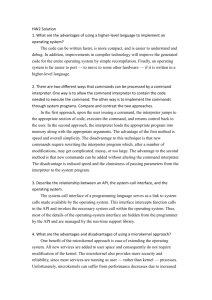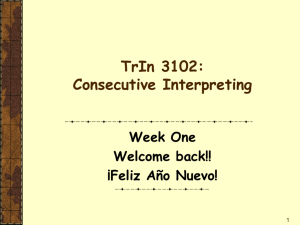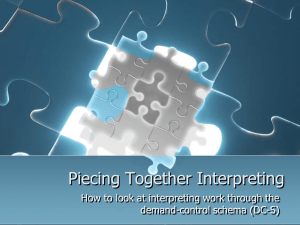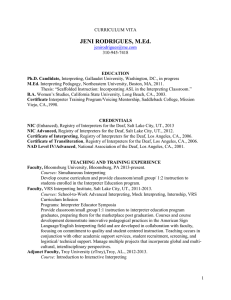Interpreter Philosophy Frames/Interpreter Service Models
advertisement
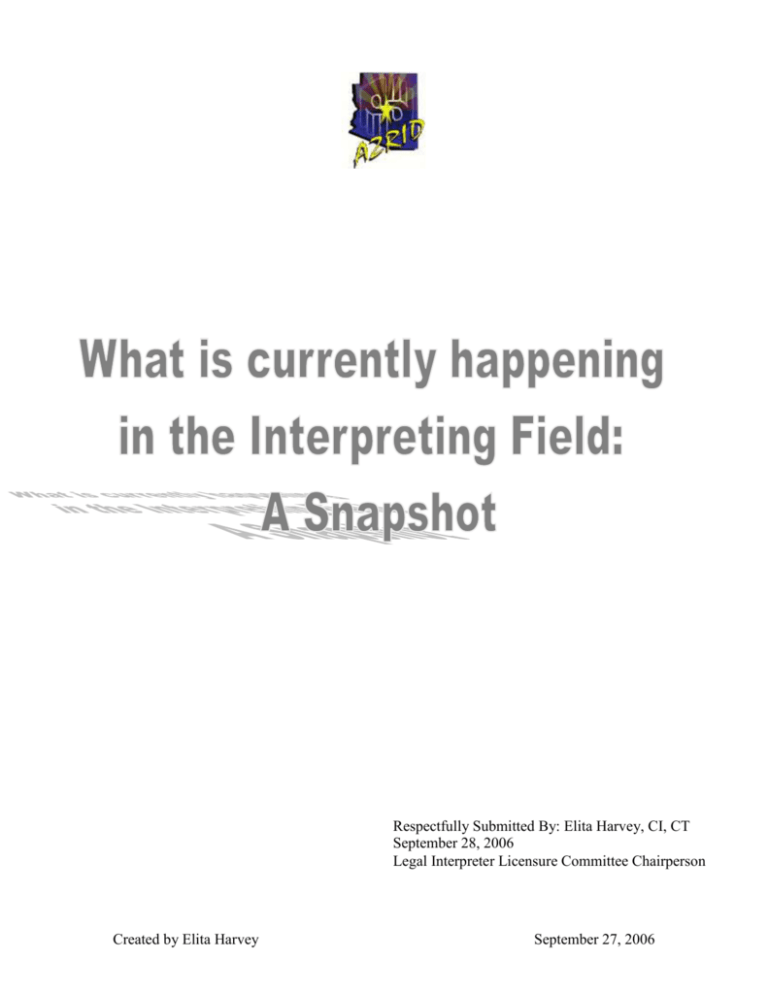
Respectfully Submitted By: Elita Harvey, CI, CT September 28, 2006 Legal Interpreter Licensure Committee Chairperson Created by Elita Harvey September 27, 2006 Interpreter Philosophy Frames/Interpreter Service Models There are 7 different “Interpreting Service Models” that are in use by practitioners. These are also known as “Philosophical Frames” or Service Models that define how an interpreter approaches his/her work. Each philosophical frame/service model has a specific viewpoint relating to how an interpreter: o o o o o Views Deaf people Defines their role as interpreter Views Deaf cultural behaviors Applies the of Code of Ethics in their practice Views American Sign Language in relation to English The 7 different philosophies/models are: Earliest o o o o o o Currently o Helper Model Conduit or Machine Model Communication Facilitator Model Bilingual-Bicultural Model Ally Model “The Sore Thumb” Model Feminist-Relational Approach Emerging Although each of these models have emerged at different times, each of these models are in active use by practitioners. The implications are enormous with respect to adjudication and appropriate resolution of a complaint. Depending on the philosophical frame/service model that an interpreter uses, their ethical decisions will be made and in some cases these decisions could be the diametric opposite to a decision made in accord with another frame/model. In other words, what may be “ethical” in one frame/model would be “unethical” in another. For further discussion, about each philosophical frame/service model— “So You Want to Be An Interpreter? An Introduction to Sign Language Interpreting”, 3 rd edition, Janice Humphrey & Bob Alcorn, Chapter 8. “Integrating the interpreting service models” by David Bar-Tzur, http://www.theinterpretersfriend.com/misc/models.html Created by Elita Harvey September 27, 2006 Section 2 (NAD-RID Code of Professional conduct) www.rid.org/coe Section 3 (State Regulation of Interpreters: Critical Issues and Model Legislation A Policy paper By Ben Hall www.rid.org/model Section 4 (Market Disorder Within the Field of Sign Language Interpreting: Professionalization Implications A Witter-Merithew, L Johnson http://www.geocities.com/azridterps/JOI_Market_Disorder_article.pdf Created by Elita Harvey September 27, 2006
